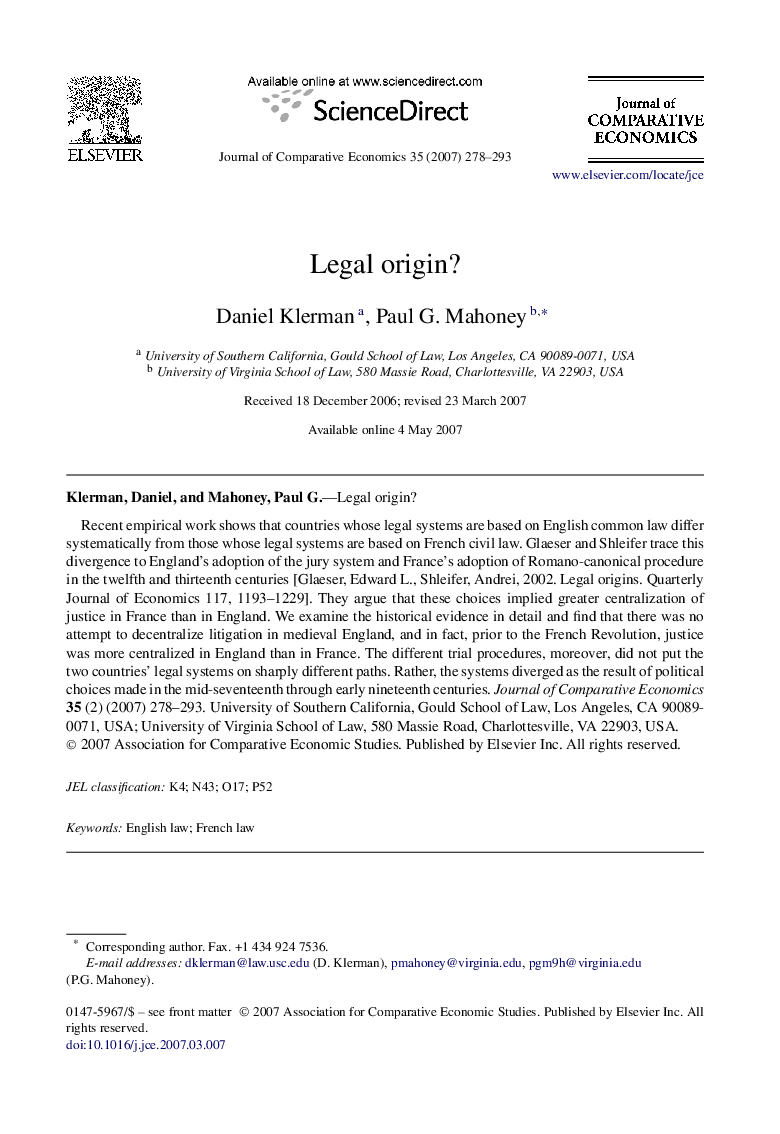| Article ID | Journal | Published Year | Pages | File Type |
|---|---|---|---|---|
| 5092773 | Journal of Comparative Economics | 2007 | 16 Pages |
Recent empirical work shows that countries whose legal systems are based on English common law differ systematically from those whose legal systems are based on French civil law. Glaeser and Shleifer trace this divergence to England's adoption of the jury system and France's adoption of Romano-canonical procedure in the twelfth and thirteenth centuries [Glaeser, Edward L., Shleifer, Andrei, 2002. Legal origins. Quarterly Journal of Economics 117, 1193-1229]. They argue that these choices implied greater centralization of justice in France than in England. We examine the historical evidence in detail and find that there was no attempt to decentralize litigation in medieval England, and in fact, prior to the French Revolution, justice was more centralized in England than in France. The different trial procedures, moreover, did not put the two countries' legal systems on sharply different paths. Rather, the systems diverged as the result of political choices made in the mid-seventeenth through early nineteenth centuries. Journal of Comparative Economics 35 (2) (2007) 278-293.
